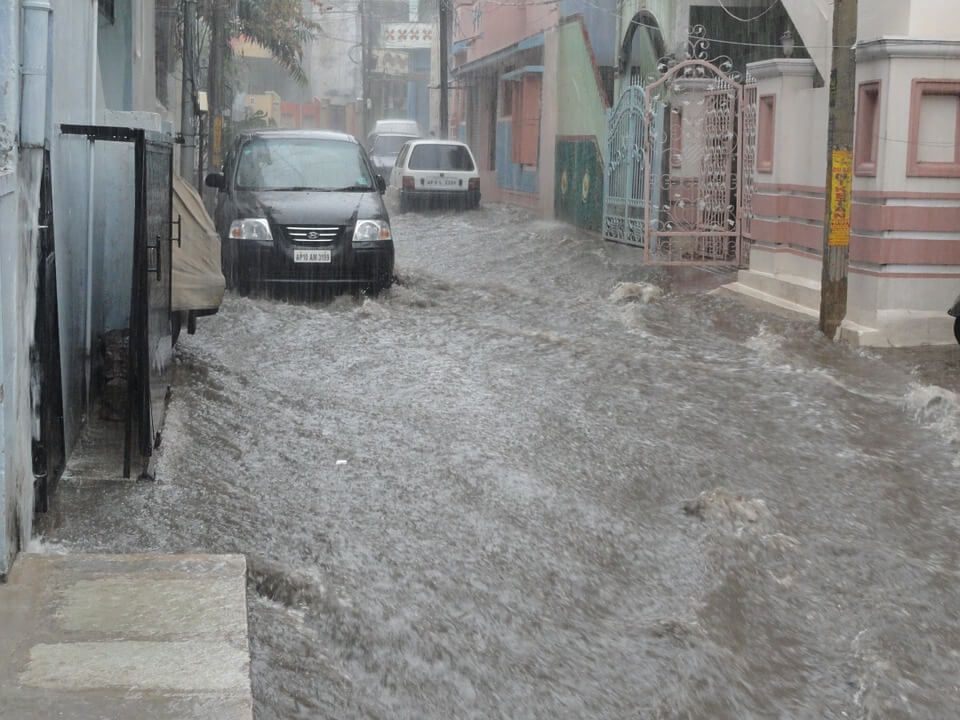In other words, FEMA is there to help people when they’re at their most vulnerable and don’t have the ability to rescue themselves from natural disasters.
Unfortunately, criminals have learned that natural disasters create opportunities for them to steal identities by impersonating FEMA employees. You can protect yourself from FEMA impersonators and identity theft by following these four tips.
1. Register for Assistance Through FEMA's Official Channels
When registering for FEMA assistance, make sure that you use DisasterAssistance.gov. Websites that use other URL addresses may be phishing attempts designed to gather social security numbers, birth dates, and other sensitive information from you.
If you rely on a smartphone to access the internet, then you can download the FEMA mobile app to apply for assistance securely. Do not use public Wi-Fi when downloading and setting up apps or when submitting personal data.
If you don’t have a reliable internet connection, then you can apply for assistance by calling 800-621-FEMA (3362).
Since natural disasters can make it impossible to use phones or access the internet, you should know the location of your local Disaster Recovery Center. When you visit the FEMA Disaster Recovery Center, someone will help you apply for assistance.
2. Do Not Respond to Unrequested Calls
After a disaster, some criminals cold-call local numbers and pretend that they’re official FEMA representatives. They’ll often ask you to verify the information that you provided on your FEMA application.
Since the identity thieves choose phone numbers randomly, they often contact households that haven’t applied for FEMA assistance. If you have not applied for assistance, then you should not give callers any information.
If you receive a phone call that seems fraudulent, you can report the caller’s name and phone number by contacting the Disaster Fraud Hotline at 866-720-5721. Calling the hotline will help FEMA learn about fraud attempts in your area. Reporting the incident could prevent others from falling victim to criminals. It will also help reduce the amount of fraud in your town, which ultimately helps keep you safe.
3. Ask for a Photo ID When an Inspector Visits Your Home
FEMA may need to send an inspector to your property to verify the information in your assistance claim. The inspector will show you a photo ID badge. If the person doesn’t show you a badge, ask to see it.
FEMA impersonators often don’t bother printing fake ID badges. They’re looking to gather information quickly so they can move on to another town and defraud its residents.
Some impersonators, however, do make the effort of printing badges. If you suspect that your inspector doesn’t work for FEMA, then you should contact your local police immediately. An officer can come to the scene to determine whether the inspector carries a valid FEMA ID badge.
It is illegal to impersonate employees of government agencies, so if you are approached by scammers it is important to file a police report and to ask the police to send out a fraud alert.
4. Stay Updated on the Latest Scams
Knowing what types of scams impersonators use will help you identify criminals trying to take advantage of people after a natural disaster.
The FEMA website maintains a list of known scams. For instance, shortly after Hurricane Maria, FEMA reported that scam artists were posing as inspectors and texting people for personal information. If you don’t know about this scam, then you’re more likely to become a victim.
You can also keep up with the latest scam attempts by following your local news on social media channels. Rumors can spread quickly, though, so it’s always a good idea to check FEMA’s website to confirm scam alerts.
It’s unfortunate that some people take advantage of natural disasters to steal the private information of victims. Knowing how to protect yourself from scams will make it easier for you to avoid FEMA impersonators and attempts to steal your identity.
If something makes you feel uncomfortable, don’t be afraid to check with FEMA or local law enforcement to ensure your identity is protected.
What if I Fall Victim to ID Theft?
Even by taking all the right steps to avoid becoming a victim of identity theft, cybercriminals may still win. If you have been scammed, go to identitytheft.gov, a website from the Federal Trade Commission, and complete an identity theft report. Representatives from the FTC will help you create a recovery plan to get back on track.
In addition, halt the use of online financial services until you contact your financial institutions and credit card companies. The faster you protect your bank accounts and credit card numbers the better. You may also want to contact Experian and Equifax to find out how to get a credit report.
Here at TDECU, we take digital banking security and identity theft very seriously. If you’d like to learn more about how we keep our Members safe, visit our security and fraud center.
Sources:
https://www.disasterassistance.gov/
https://www.fema.gov/mobile-app
https://egateway.fema.gov/ESF6/DRCLocator
https://www.fema.gov/press-release/20201016/beware-fraud-and-scams
